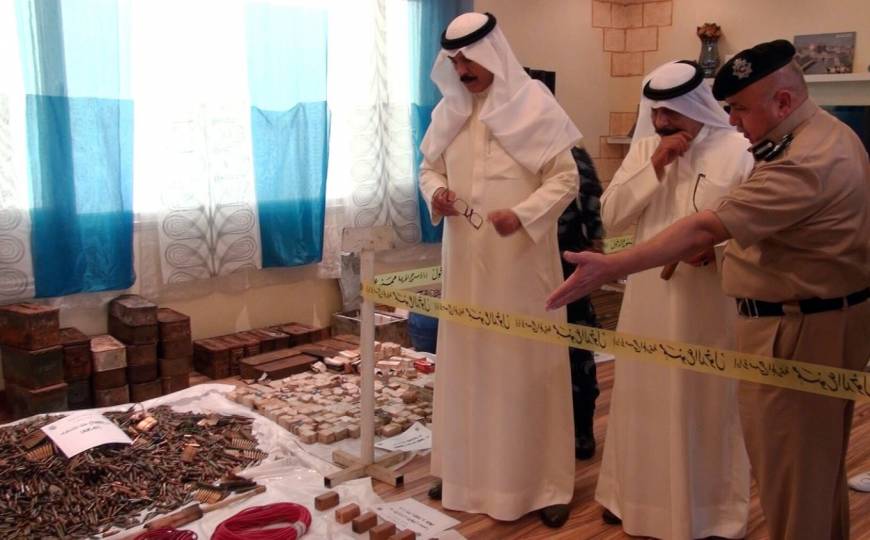Kuwait – Kuwaiti-Iranian ties have entered a new phase of tensions that have marred their history in recent decades.
The tensions erupted in wake of the Kuwaiti government’s decision on Thursday to lower the number of diplomats at the Iranian embassy and expel some 15 Iranian diplomats.
The development came in wake of the escape of 16 members of the “Abdali cell” from detention in Kuwait.
The cell, comprised on 26 Kuwaitis and an Iranian, was part of a conspiracy to destabilize the country with the cooperation of Iran and Lebanon’s “Hezbollah” militant group.
The escape has also reportedly prompted Kuwait to ask Tehran’s ambassador in the country to leave.
Tensions between the two neighbors over this issue however date back to when the cell was initially discovered and not in the escape.
It was first revealed to the public on August 13, 2015 and its primary suspect is Iranian diplomat Abdulreza Haidar Dahqani, who has been sentenced to death in absentia. He was working at his country’s embassy in Kuwait at the time of the discovery.
Thursday’s developments marked the second chapter of this ongoing diplomatic crisis.
There is speculation that the 16 suspects fled Kuwait to Iran by sea, even though the Kuwaiti Interior Ministry said on Wednesday that its official records indicate that they are still in the country.
Prior to this week’s developments, Kuwaiti-Iranian ties had witnessed periods of tensions and others of calm, but throughout these times the Islamic Republic was weaving spy cells inside the Gulf state.
In February, Iranian President Hassan Rouhani made a brief visit to Kuwait. It was preceded by an official to Tehran by Emir Sheikh Sabah al-Ahmed in June 2014. He had relayed to Iranian officials a Gulf message on a vision for political dialogue on condition that Tehran cease meddling in its internal affairs.
In August 2015, the Abdali cell was arrested and the Interior Ministry seized 19 tons of ammunition from its possession, as well as 144 kgs of TNT, a number of rocket-propelled grenades, hand grenades, detonators and weapons.
The most difficult phase of Kuwaiti-Iranian tensions occurred in the 1980s during the Iraqi-Iranian war. During this period, Kuwait witnessed a number of security incidents, which were openly and indirectly blamed on Iran. These included the December 1983 bombings of the French and US embassies and the Kuwait airport and the assassination attempt against the Emir of Kuwait in May 1985. Lebanese organizations were blamed for these incidents.
A Bangkok-bound Kuwait Airways was hijacked in 1988 and the attack against Kuwaiti oil tankers in the Gulf also took place.
Ties between Kuwait and Iran improved slightly after 1991 when Kuwait was liberated from the Iraqi invasion.
They took a knock however in 2010 after Kuwait discovered an Iranian spy cell in its country. Later that year, it issued death sentences against four suspects, including two Iranians, on charges of spying for Tehran. Seven other suspects were also sentenced on espionage charges.
In March 2011, Kuwait sentenced two Iranians and a Kuwaiti to death for belonging to an Iranian spy cell. Two other suspects were given life in prison in the same case. In wake of the development, Kuwait expelled in April 2011 a number of Iranian diplomats accused of espionage and it warned Tehran that this case will have “dangerous repercussions” on bilateral ties. Tehran has denied the accusations against it.
In May 2013, a Kuwait court sentenced to life in prison four members of the so-called “Iranian Spy Cell”. Three of its members were acquitted.
In January 2016, Kuwait summoned the Iranian ambassador and handed him a complaint in wake of the attacks against Saudi diplomatic missions in Tehran.
